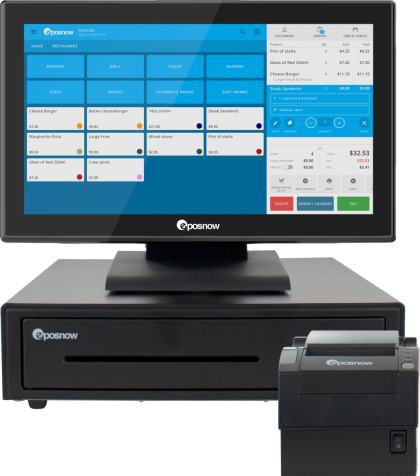Hotel Business Ideas - Turn Your Idea Into Reality
Are you looking for hotel business ideas to help you turn your dream of working in the hospitality industry into a reality? Starting a hotel business is a challenging task and requires significant time and money. But it can be incredibly rewarding with the right idea, knowledge, and resources. This guide will share some of the best hotel business ideas, from establishing a niche B&B to launching an upscale eco-resort. You'll learn the following:
- What to consider when choosing a hotel business idea
- Strategies for getting the most out of your budget
- Tips on how to make your concept stand out from the competition
- How to create a successful marketing plan
- Ways to focus on customer service and satisfaction
Let's get started.
What to consider when choosing a hotel business idea
Before we dive into our top 25 hotel business ideas, there are several factors you'll want to consider when deciding which concept is suitable for you. These include:
- Location: Your location will play a significant role in the success of your hotel, so make sure you pick one that is attractive to tourists and business travelers alike.
- Budget: Your budget will determine how much you can invest in your facility, marketing efforts, and other critical elements of running a successful hotel
- Target Market: Who will be your target market – families, business travelers, or luxury travelers?
With these factors in mind, let's look at our top hotel business ideas for hospitality industry leaders. Whether you're looking to start a budget-friendly B&B or an ultra-luxury resort, there's something here for everyone. Good luck!
10 hotel business ideas
1. Start a luxury hotel chain or a resort hotel
Resort hotels provide guests with enjoyable and high-end hotel experiences and therefore are a great hotel business idea. They offer all the amenities of luxury hotels but with bonuses like onsite upscale restaurants, spas, and entertainment venues. Plus, resort hotels can be incredibly profitable if you know how to manage them properly.
Tips for successful resort hotels:
- Invest in high-end, comfortable furnishings and décor to create a luxurious atmosphere.
- Offer unique experiences such as cooking classes, yoga retreats, and adventure activities.
- Use online platforms to promote your hotel and attract customers from around the world.
- Make sure you stay current on the latest hospitality trends to stay competitive.
- Focus on customer service and satisfaction to ensure a positive guest experience.
Considerations:
- Establishing a resort requires a significant investment of both time and money.
- You will need to hire experienced staff to manage the hotel's day-to-day operations.
- It's important to research the local market and ensure there is enough demand for your luxury services.
- Resorts must be properly managed to ensure a positive guest experience.
2. Start a budget hotel chain
Unlike luxury hotels, budget hotels appeal primarily to backpackers or travellers who want an affordable hotel room without sacrificing quality. They are the perfect option for those looking to visit a destination on a budget.
Tips for successful budget hotels:
- Offer basic amenities such as a clean bed and bathroom in your hotel business.
- Focus on customer service to differentiate yourself from competitors.
- Utilize online booking platforms to promote your hotel and attract new customers.
- Offer discounted rates for extended stays and group bookings at your hotel business.
- Take advantage of the latest technology to streamline administrative tasks in your hotel business.
Considerations:
- You must be able to provide competitive rates at your hotel business without sacrificing quality or customer service.
- Budget hotels must be properly managed and maintained to ensure a positive guest experience.
- Invest in marketing efforts to increase visibility and attract new customers to your hotel business.
3. Start a boutique hotel
Boutique hotels provide travelers with a unique and luxurious experience. These hotels are usually smaller in size than traditional luxury hotels, making them ideal for those looking for a personalized stay.
Tips for successful boutique hotels:
- Offer unique and personalized experiences to differentiate your hotel business from larger chain hotels.
- Focus on high-quality service and ensure that guests feel well taken care of at your hotel business.
- Utilize social media and other digital marketing strategies.
- Partner with local businesses and organizations to tap into new customer bases and provide unique experiences for guests at your hotel business.
Considerations:
- Identifying your target market is important for any hotel business, but it is crucial for boutique hotels, which often cater to specific types of travelers. Consider what type of experience you want to offer and who your ideal guests would be.
- The design and decor of your boutique hotel will play a significant role in creating the atmosphere and experience you want to offer. Think carefully about the style and theme you want to portray.
- Amenities and services: Offering a range of amenities and services can help set your boutique hotel apart from the competition. Consider what your guests might need or appreciate, such as a gym, a spa, a restaurant or bar, or meeting and event spaces.
4. Start a bed and breakfast
A bed and breakfast (or B&B) owner provides guests with accommodations, meals, and other personal services. A B&B is great option for those who want to start a hospitality business but don’t want to invest in luxury hotels.
Tips for successful bed and breakfasts:
- Your breakfast should be the highlight of your bed and breakfast. Serve up delicious, locally sourced meals to ensure a positive guest experience. Also, be sure to provide dietary options for vegetarian and vegan guests.
- Make your bed and breakfast a home away from home by providing cozy amenities such as comfy beds, fluffy towels, and relaxing bath products in your small hotel
- Create marketing materials that showcase the unique charm of your space and advertise special offers or discounts to attract new customers.
Considerations:
- The success of your bed and breakfast will depend in large part on the quality of service you provide. Make sure to hire experienced, friendly staff committed to providing an excellent guest experience.
- Bed and breakfasts must be properly managed to ensure a positive guest experience. As a small business owner, this will likely require significant time and effort.
- Creating a website and use social media platforms can help you to reach out to potential customers. You should also list your bed and breakfast on popular travel sites.
5. Start a hotel with a focus on wellness and fitness
More and more travelers are looking for hotels with wellness amenities such as gyms, yoga classes, meditation rooms, and healthy food options. For those who want to cater to these guests’ needs, starting a hotel focused on wellness, and fitness can be a lucrative opportunity.
Tips for successful wellness and fitness-focused hotels:
- Provide guests with access to a variety of fitness and wellness amenities, such as a gym and fitness center, yoga studios, meditation rooms, and healthy food options.
- Find experienced and qualified instructors for your hotel business.
- Partner with local businesses or organizations that offer additional health-focused services or activities.
Considerations:
- It’s important to create a comprehensive wellness program that meets the needs of all your guests. Be sure to provide amenities and services for both active and passive guests.
- As with any hotel business, marketing is essential. Use digital platforms such as social media or email campaigns to spread the word about your hotel.
- Be sure to have the proper insurance coverage for your wellness and fitness-focused business.
6. Start a hotel with a focus on eco-tourism
Eco hotels can be a great way to attract eco-conscious travelers and provide them with meaningful, sustainable experiences. Eco hotels preserve the environment through responsible tourism practices such as reducing energy consumption and supporting local communities.
Tips for successful eco hotels:
- Utilize eco-friendly building materials and energy-efficient appliances, lighting, and heating systems.
- Choose eco-friendly cleaning and laundry products to reduce your environmental impact.
- Partner with local eco-tourism operators and organizations to provide guests with access to sustainable experiences in the area.
Considerations:
- Sustainability is a complex issue, and eco-tourism can be difficult to manage. You should make sure to have a thorough understanding of eco-friendly practices before starting your business .
- As with any hotel business, it’s important to create an engaging marketing strategy that will attract eco-conscious travelers. Use social media platforms to spread awareness of your eco-friendly initiatives.
- Be sure to hire experienced staff committed to providing excellent eco-tourism experiences for guests. Educate your employees about eco-friendly practices and ensure that all hotel operations adhere to the highest sustainability standards.

The Complete Hospitality POS System
On-site dining, takeaway, or delivery? You choose. Adapt and thrive with a POS system that makes it all possible.
7. Start a hotel with a focus on business travel
Another business idea for the hotel industry is to cater to business travelers. Business hotels are designed for those who travel on business-related trips and typically feature amenities such as conference rooms, high-speed internet access, and comfortable guest rooms.
Tips for successful business hotels:
- Provide guests with plenty of office space and the necessary technology for a productive stay.
- Partner with local companies to offer business travelers discounts or special packages.
- Offer amenities such as an on-site restaurant and bar, a business center, and a fitness center.
Considerations:
- It’s important to understand your target market before starting a business hotel. Research the types of clients who are likely to stay at your hotel, and tailor your services to their needs.
- Create an efficient check-in process that is designed for busy business travelers.
- Be sure to have a comprehensive security system in place to protect the safety of guests and their data.
8. Start a hotel with a focus on family travel
Family hotels are a great option for those looking to attract families with children. These hotels typically offer appealing amenities to both adults and kids, such as swimming pools, game rooms, and family-friendly activities.
Tips for successful family hotels:
- Provide guests with comfortable accommodations that can accommodate multiple guests.
- Offer age-appropriate activities and amenities such as a playground, a game room, or an on-site theater.
- Partner with local attractions to provide guests with discounted access to nearby family-friendly destinations.
Considerations:
- It’s important to clearly understand your target audience when starting a family hotel. Research the types of families likely to stay at your hotel and tailor your services accordingly.
- Ensure that safety measures, such as secure entrances and a reliable security system, are in place.
- Develop an effective marketing strategy that will reach families with children. Use social media platforms to promote family-friendly activities offered by your hotel.
9. Start a hotel with a focus on adventure travel
Adventure hotels are a type of hotel business designed to cater to travelers looking for an exciting and unique experience. Adventure hotels often offer activities such as hiking, biking, rock climbing, or skiing.
Tips for successful adventure hotels:
- Offer a wide range of activities that can be tailored to the needs of each guest.
- Partner with local organizations and tour operators to provide guests with access to unique experiences.
- Provide guests with quality accommodations and amenities such as a fitness center, an outdoor pool, or a spa.
Considerations:
- Research the activities that are popular with adventure travelers in your area. Consider offering activities that aren’t commonly found in other hotels or resorts.
- Create an effective marketing strategy to reach the adventure travel market. Use digital platforms such as social media or a website to promote your hotel and its offerings.
- Incorporate eco-friendly practices into your operations. Adventure travelers are often eco-minded, so highlight any eco hotels you offer and raise awareness of your eco-friendly practices.
- Ensure that staff members are trained to provide guests with the highest level of safety and security when participating in activities.
10. Start a serviced apartment hotel
Serviced apartments are a type of hotel business that offers guests the amenities of a hotel but with the privacy and convenience of an apartment. Serviced apartment hotels offer guests fully furnished apartments with kitchenettes, living areas, and high-speed internet access.
Tips for successful serviced apartment hotels:
- Carefully select locations that will appeal to the types of guests who are likely to stay at your hotel.
- Offer self service hotels options to guests, such as online check-in or automated room access.
- Provide guests with quality amenities such as a fitness center, an outdoor pool, and on-site restaurants and bars.
Considerations:
- Cleaning and damage policies should be clearly outlined and communicated to guests.
- Develop an effective marketing strategy in order to reach the serviced apartment market. Use digital channels such as social media or a website to promote your hotel and its offerings.
- Ensure that staff members are trained in housekeeping and customer service to provide guests with excellent service.
Tips on how to make your concept stand out from the competition
Now that you clearly understand what type of hotel business you want to start, it’s important to ensure that your concept stands out from the competition. Here are some tips on how to make your hotel unique:
- Develop a signature style or theme for your hotel and use this as a branding tool: This could be as simple as a colour palette or as elaborate as an entire theme
- Offer unique services that stand out from the competition: This could include eco-friendly initiatives, special packages and offers, or even a complimentary bar.
- Partner with local businesses to offer exclusive experiences to your guests: This could involve discounts on activities in the area, special dinners or events, or access to local attractions.
- Utilize online platforms and social media to promote your hotel: This will help you reach a wider audience, allowing potential guests to get a better idea of what makes your hotel unique.
- Focus on providing excellent customer service: Make sure that all staff are well-trained in customer service and that you offer a range of amenities to make your guests’ stay as comfortable as possible
- Make sure to invest in quality marketing materials: Invest in good photography, video, and other visuals to showcase your hotel and create an attractive online presence.
Ultimately, the key to standing out from the competition is to create a unique hotel experience that sets you apart from other hotels in the area. With a clear concept, quality services, and an effective marketing strategy, you can ensure that your hotel stands out from the rest!
How to create a successful marketing plan for your hotel business
Creating a successful marketing plan for a hotel business involves several key steps:
Define your target market
Identify who your ideal guests are and what they are looking for in a hotel. Consider factors such as location, price point, and amenities.
A great way to identify your target audience is through market research. This can be done by conducting surveys and looking at trends within the hotel industry. You can also create a customer profile to help you better understand who your ideal guest is.
Set your marketing objectives
Determine what you want to achieve with your marketing efforts. Examples might include increasing brand awareness, driving direct bookings, or boosting occupancy rates.
You can also set measurable objectives that can be tracked over time. This could include a certain number of bookings or an increase in website visits.
SMART goal setting is a great way to create marketing objectives. This involves making sure your goals are Specific, Measurable, Achievable, Relevant and Time-bound.
Develop a budget
Allocate resources to different marketing channels based on your goals and target market. Consider factors such as the cost of advertising, website maintenance, and any additional staff you may need. You should also factor in the cost of producing any marketing collateral such as brochures or flyers.
Create a marketing mix
Determine the marketing strategies and tactics you will use to reach your target market. This could include tactics such as advertising, email marketing, social media marketing, and public relations.
Implement and track your marketing efforts
Put your marketing plan into action and track the results to see what is working and what may need to be adjusted.
Review and adjust your plan
Regularly review your marketing plan to ensure it is meeting your goals and making the most of your resources. Be prepared to make adjustments as needed based on your findings.
Remember, a successful marketing plan should be tailored to your specific hotel business and take into account the unique needs and characteristics of your target market.
How can you use technology to boost your hotel business?
Technology can be a powerful tool for boosting your hotel business. One way to use technology is by implementing a POS (point-of-sale) system, specifically POS technology designed specifically for the hotel and hospitality industry. A hospitality POS system can streamline various operations, including reservation management, room assignment, guest check-in/check-out, and billing. In addition to these core functions, a POS system can integrate with payment processing services.
A property management system (PMS) is another type of technology that can be useful for boosting your hotel business. A PMS is a software platform that helps you manage various aspects of your hotel, including reservations, guest check-in/check-out, room assignment, and billing.
A PMS can be integrated with a POS system to create a seamless and efficient workflow. For example, a PMS can automatically update room availability and rate information in the POS system when a reservation is made.
In addition to streamlining operations, a PMS can also help you better understand your guests and their preferences. Many PMS systems include features such as customer relationship management (CRM) tools, which allow you to track and analyze guest data, including booking history and preferences. This can help you tailor your marketing efforts and improve the guest experience.
Final thoughts
Your hospitality business can be as creative and unique as you make it!
With the right combination of services, amenities, and marketing strategies, you can create a successful hotel business that stands out from the competition.
Don’t forget to consider eco-friendly practices when crafting your own hotel business concept, and consider partnering with local organizations to offer guests fun and unique experiences.
By following these hotel business ideas and tips, you will be well on making your hospitality dreams a reality!
Want to learn more about the hotel industry? Check out our blogs below:
- How to start a hotel business
- How to run a hotel business successfully
- How to start a hotel business with no money



